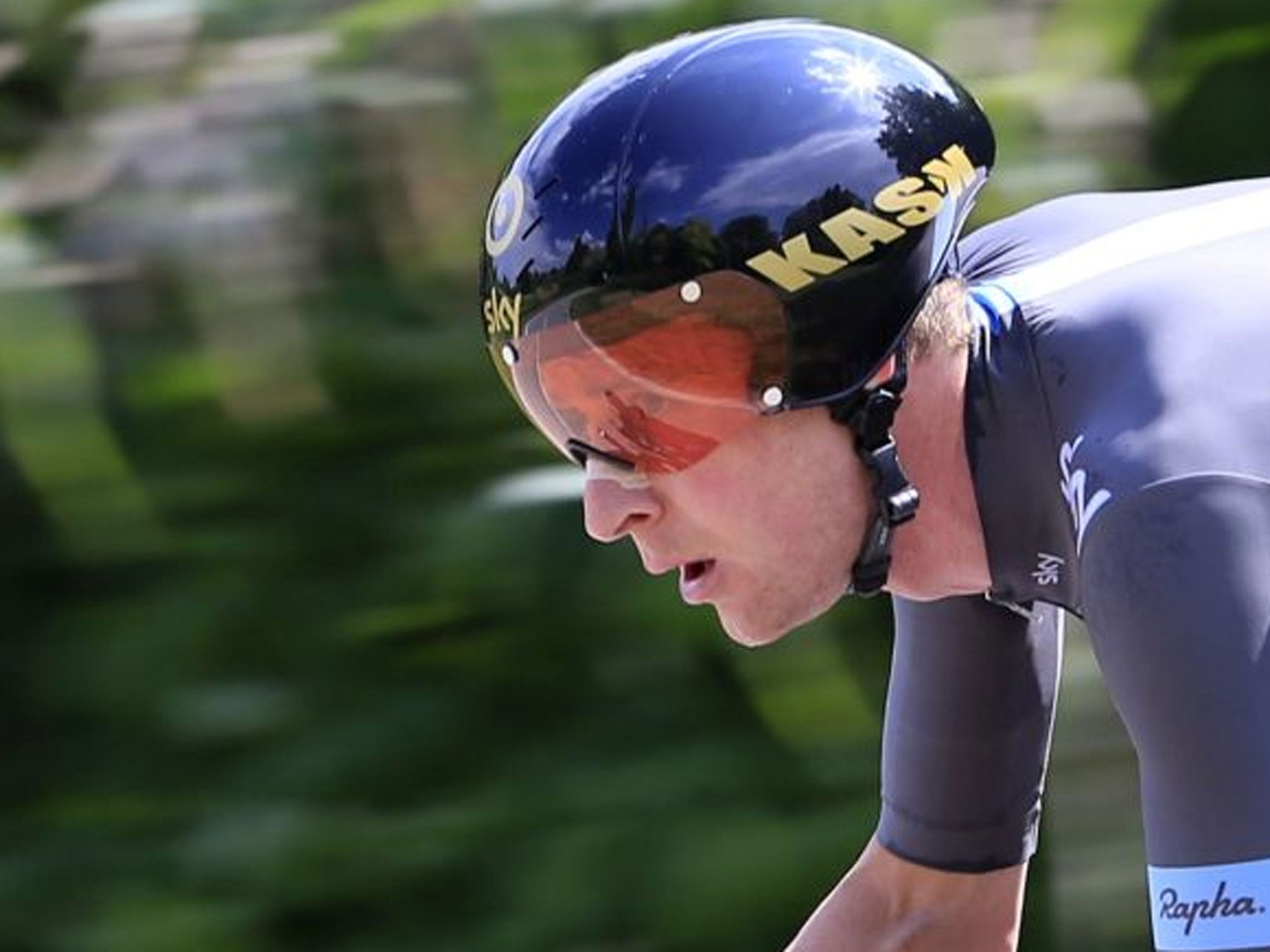Cycling: Sir Bradley Wiggins leads the way in trying to put the great into British tour
Sky’s knight and other stars are lifting the profile of the ‘people’s race’ which begins today

This year’s Tour of Britain is the 10th in the race’s current format, a far cry from the 100th edition the Tour de France celebrated earlier this year. But when the 114-strong pack rolls out of Peebles, Scotland at 10.30 am today, there can be no denying that the presence of Sir Bradley Wiggins and Mark Cavendish either means that the country’s title race is steadily growing closer in stature to its French equivalent, or that both big names – and Team Sky – have unfinished business in the Tour of Britain.
Unlike last year, when Wiggins’ presence in the race was little more than a post-Tour De France, post-Olympic extended lap of honour, this time round he is using Britain as a launchpad for his bid to win the World Championships time-trial later this month. As for Cavendish one more stage victory added to his current career total of seven would make him the most prolific winner in the Tour of Britain in its current format.
For Wiggins’ Team Sky, meanwhile, the Tour of Britain represents a paradox: they may be the world’s No 1 ranked team and have won the Tour de France twice in a row. But in the team’s four-year history, victory in their home race remains elusive.
The truth is that the Tour of Britain does not readily lend itself to big-league juggernauts like Sky. With six riders per team rather than the nine per squad in the Tour de France, the eight-day, 1,186km event is notoriously hard for a leader’s teams to control.
And for the plethora of smaller British teams taking part for whom the Tour of Britain is their biggest event of the season, a chance to beat Sky is not something they will readily pass by.
Finally there is the route itself, which with its dozens of short, punchy climbs and narrow British country lanes alongside incursions into Snowdonia and across the Lake District’s Honister Pass makes it natural terrain for dangerous breakaways to gain time quickly. And Sky, or any other team dominating the race, has limited firepower with six men to bring all the moves back.
This has already proved painfully evident to the British team, who lost the 2010 race to Swiss rival Michael Albasini after losing control of the race early on, and again in 2012, when Jonathan Tiernan-Locke scored a huge victory for the small-scale Endura squad.
Wiggins has a fighting chance to take the race, with a 16km time-trial on stage three an ideal opportunity for the Briton – although the race’s first summit finish, on Dartmoor’s Haytor on stage seven, may not be so much to his liking.
Yet for all the Tour of Britain is steadily gaining in stature, a quantum leap is required for it to match the Tour de France. But is that so important?
If Le Tour’s grandeur lies in its setpiece showdowns on some of Europe’s wildest, toughest road climbs in the Alps and Pyrenees, for UK fans the beauty of the Tour of Britain is its accessibility. “No other sport can take place on your doorstep,” one of Britain’s greatest sports journalists, the late Geoffrey Nicholson, once wrote about road-racing, and for eight days, with Wiggins, Cavendish and other top names such as Nairo Quintana, second in the 2013 Tour de France, also present on British roads, that will be true for cycling fans here.
Around a million supporters turned out for “their” race in 2012. Those who cannot do so this year will be able to follow it live on British Eurosport – again for the first time in the race’s history.
There can be no doubt either that organisers have stretched the race across as much of the country as is logistically possible. After starting in southern Scotland, stage two brings the riders through the Lake District, while stage four runs across some of the toughest mountain passes in Wales.
Stage six in the South-West will almost certainly decide the winner, with a five-kilometre grind up to Haytor in Dartmoor, after which two gentler stages bring the race, first to a difficult cobbled finish in Guildford on Saturday, then into central London a week on Sunday.
How hard Wiggins will want to go in order to win the Tour of Britain when he and other riders have eyes on the World Championships titles the following week is one big question. But at best – and after a year in which Wiggins has not shone anywhere near as brightly in 2012 – he might just put the record straight for Sky in its home race.
Subscribe to Independent Premium to bookmark this article
Want to bookmark your favourite articles and stories to read or reference later? Start your Independent Premium subscription today.

Join our commenting forum
Join thought-provoking conversations, follow other Independent readers and see their replies